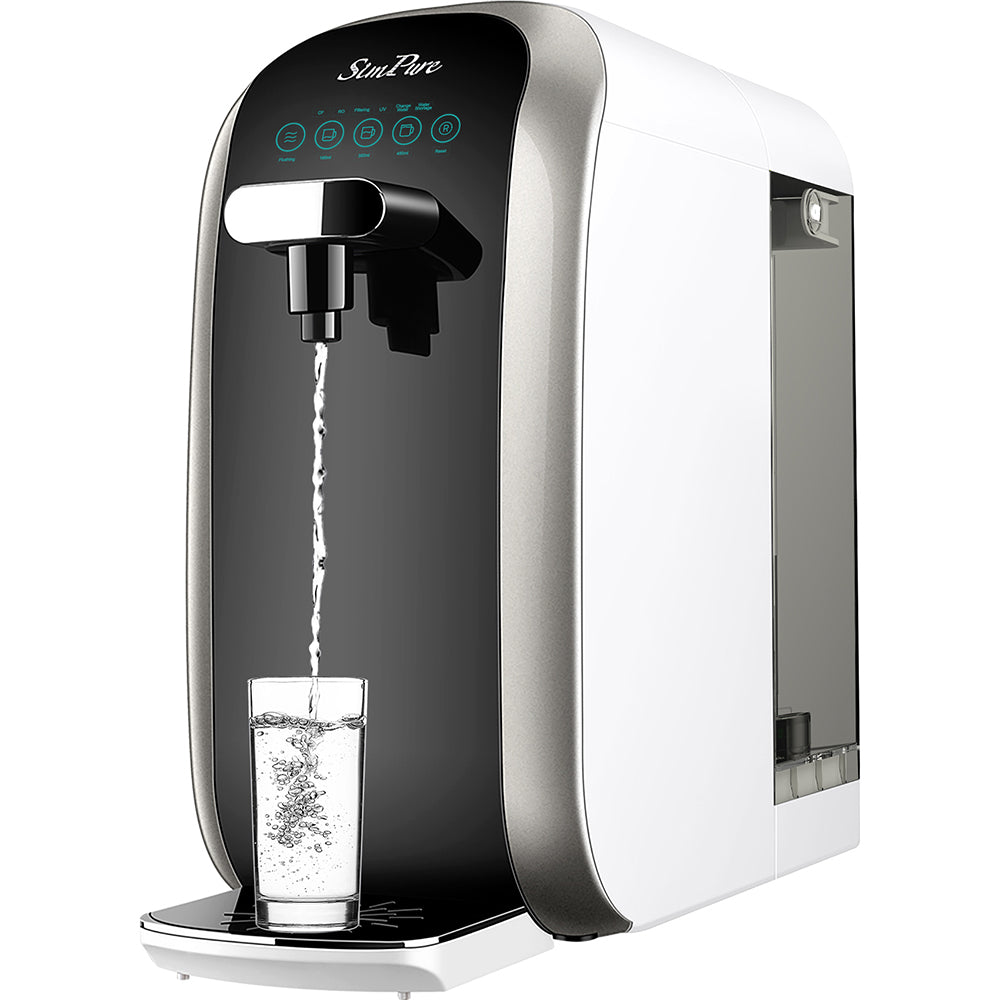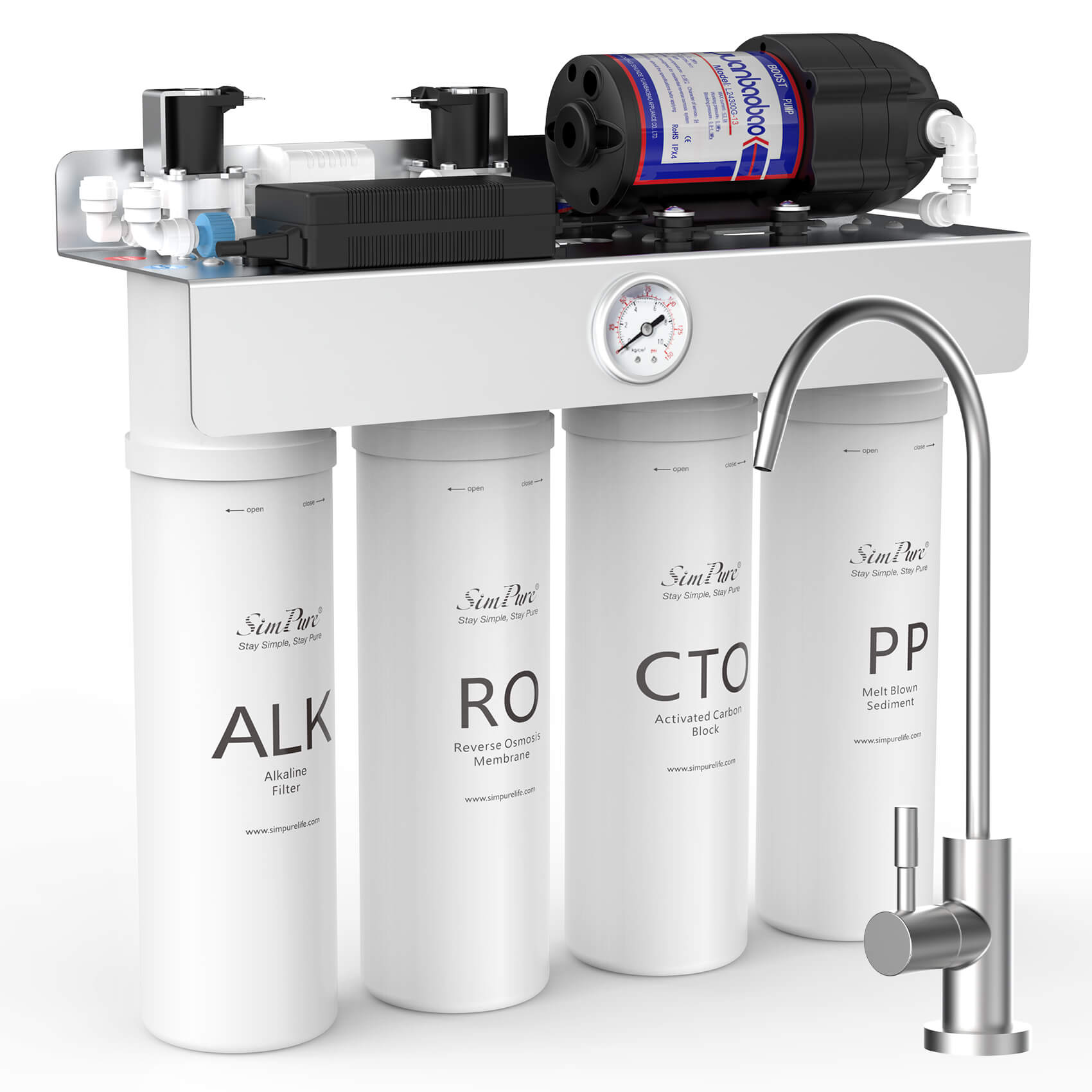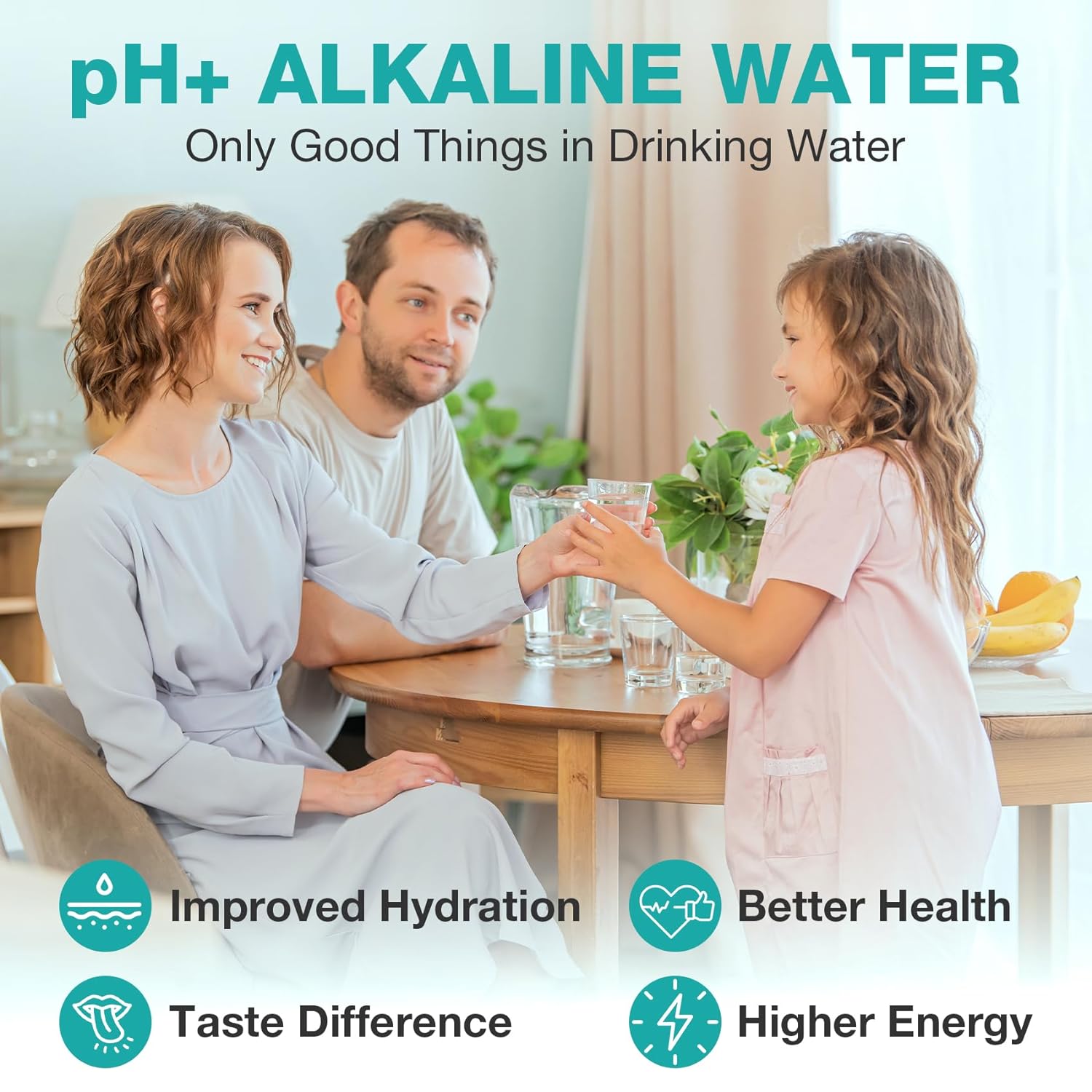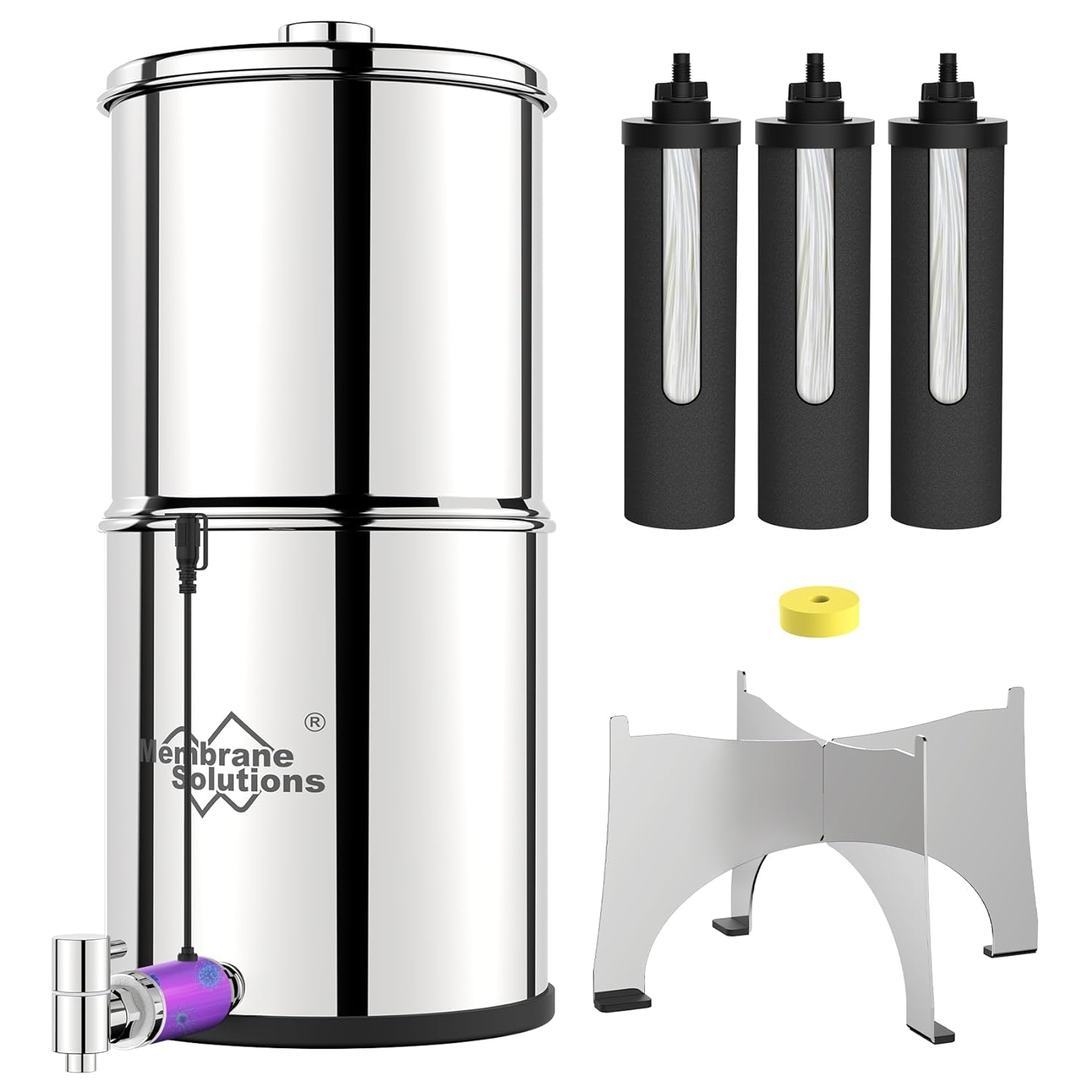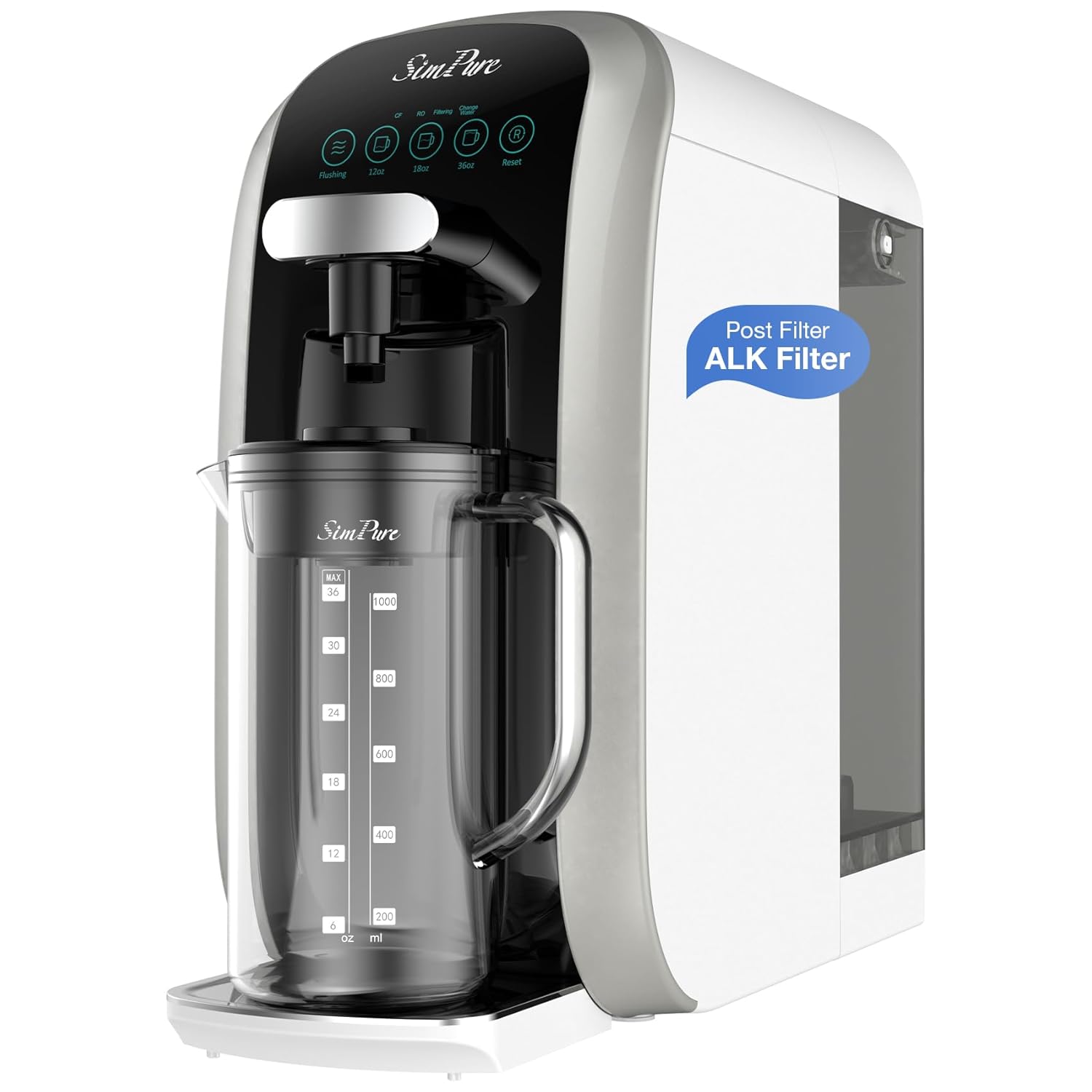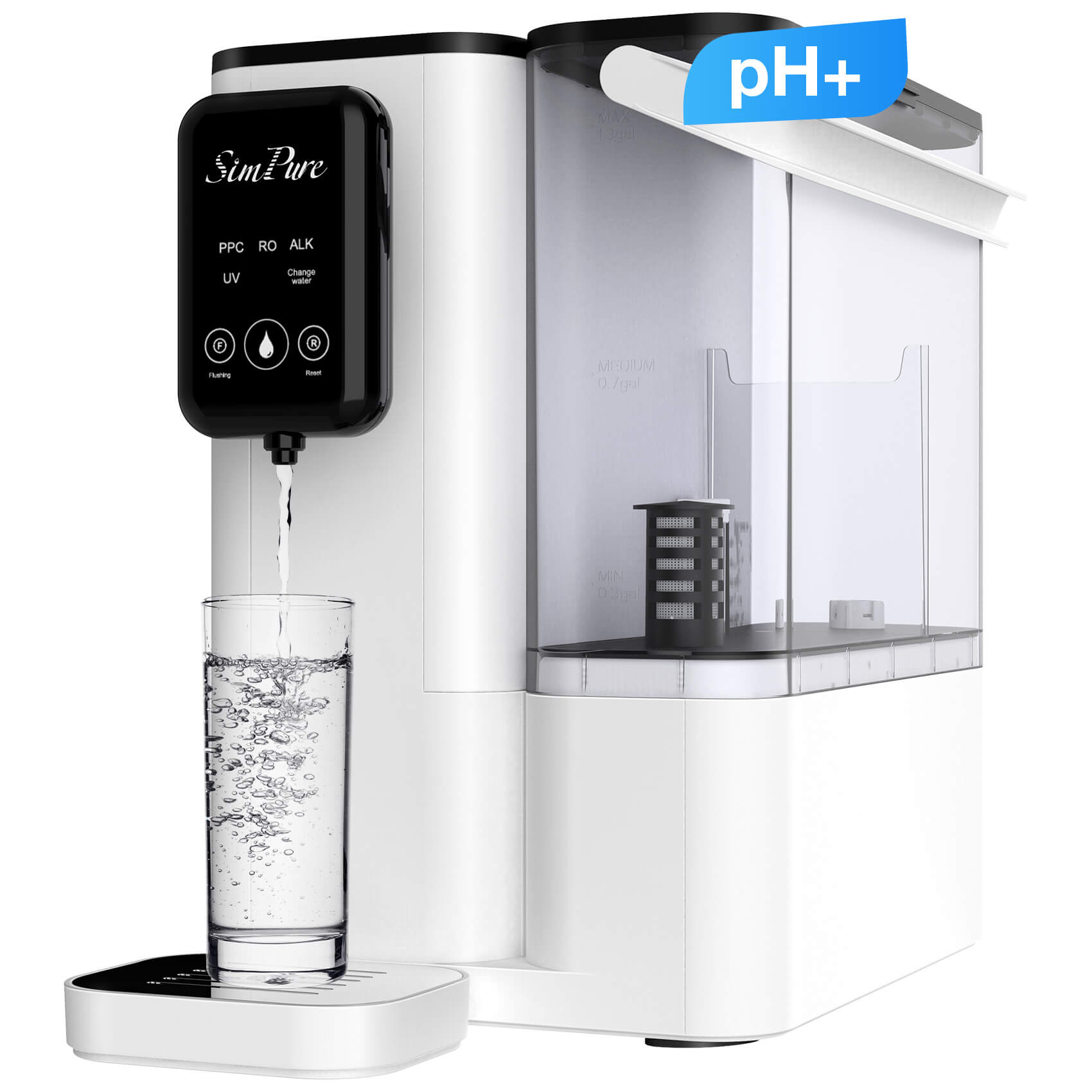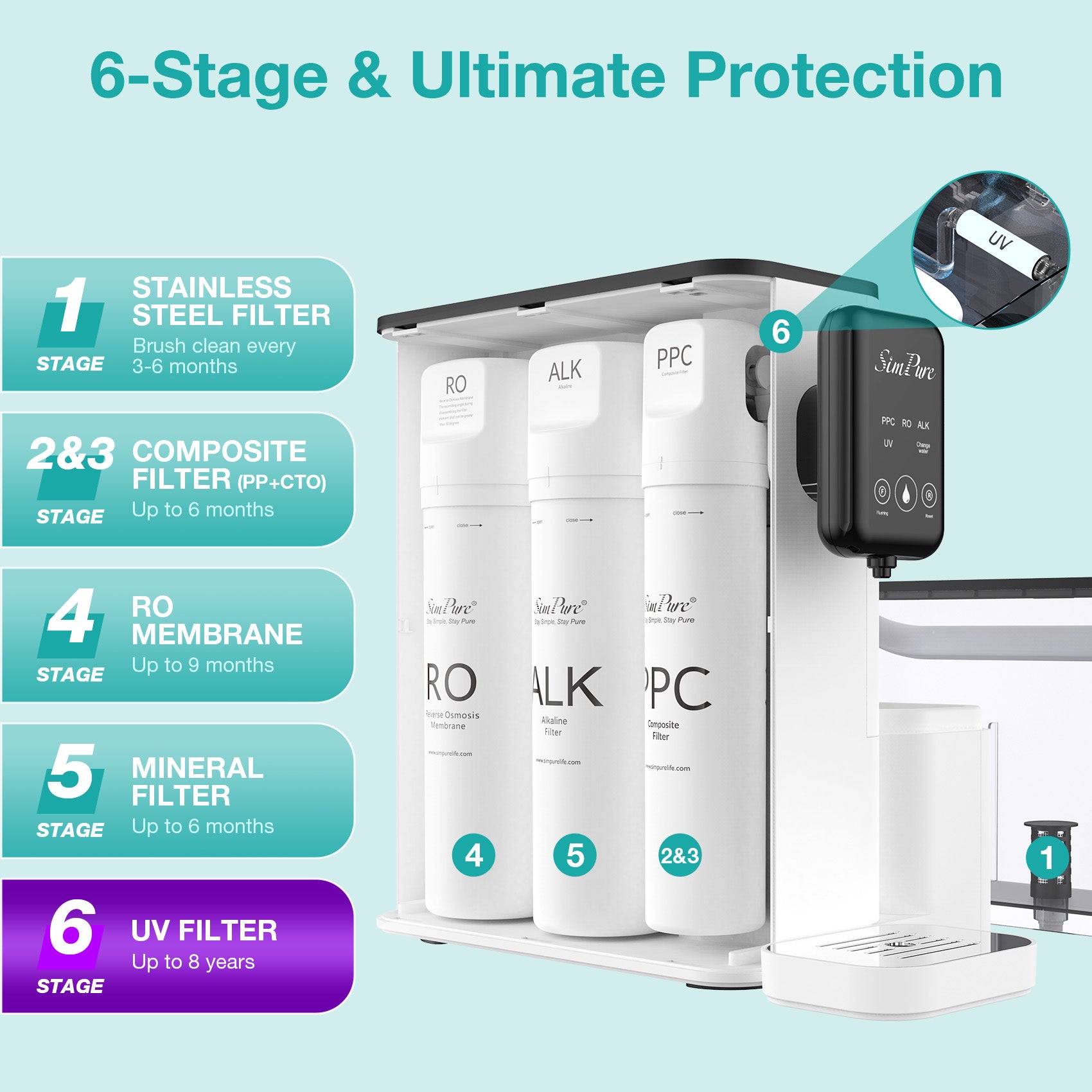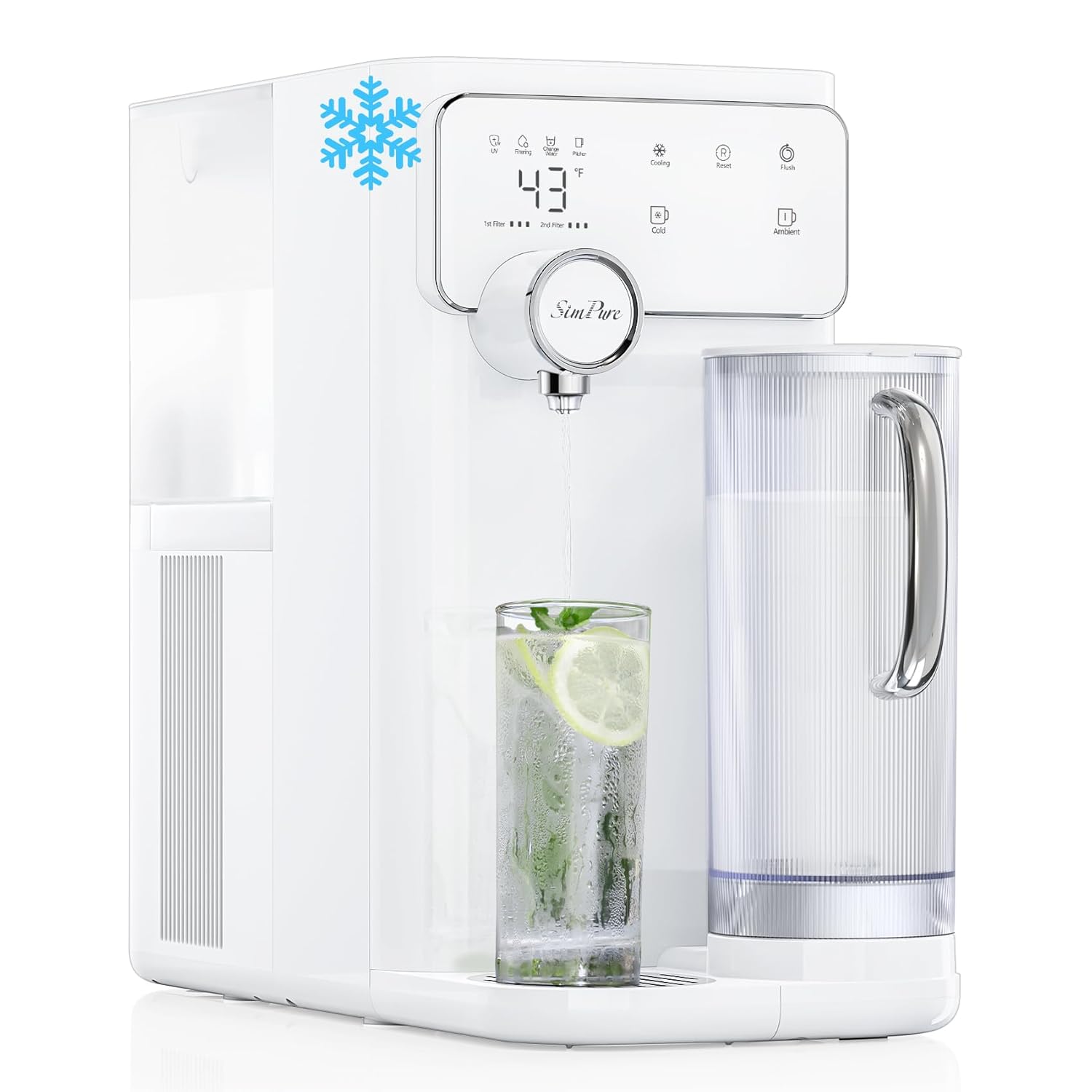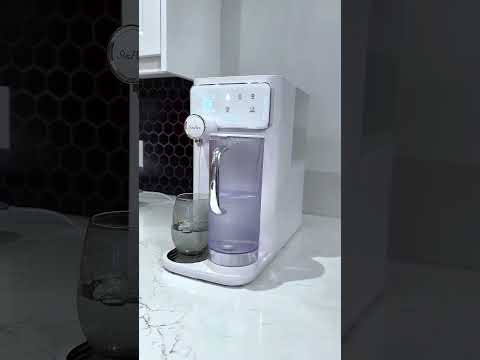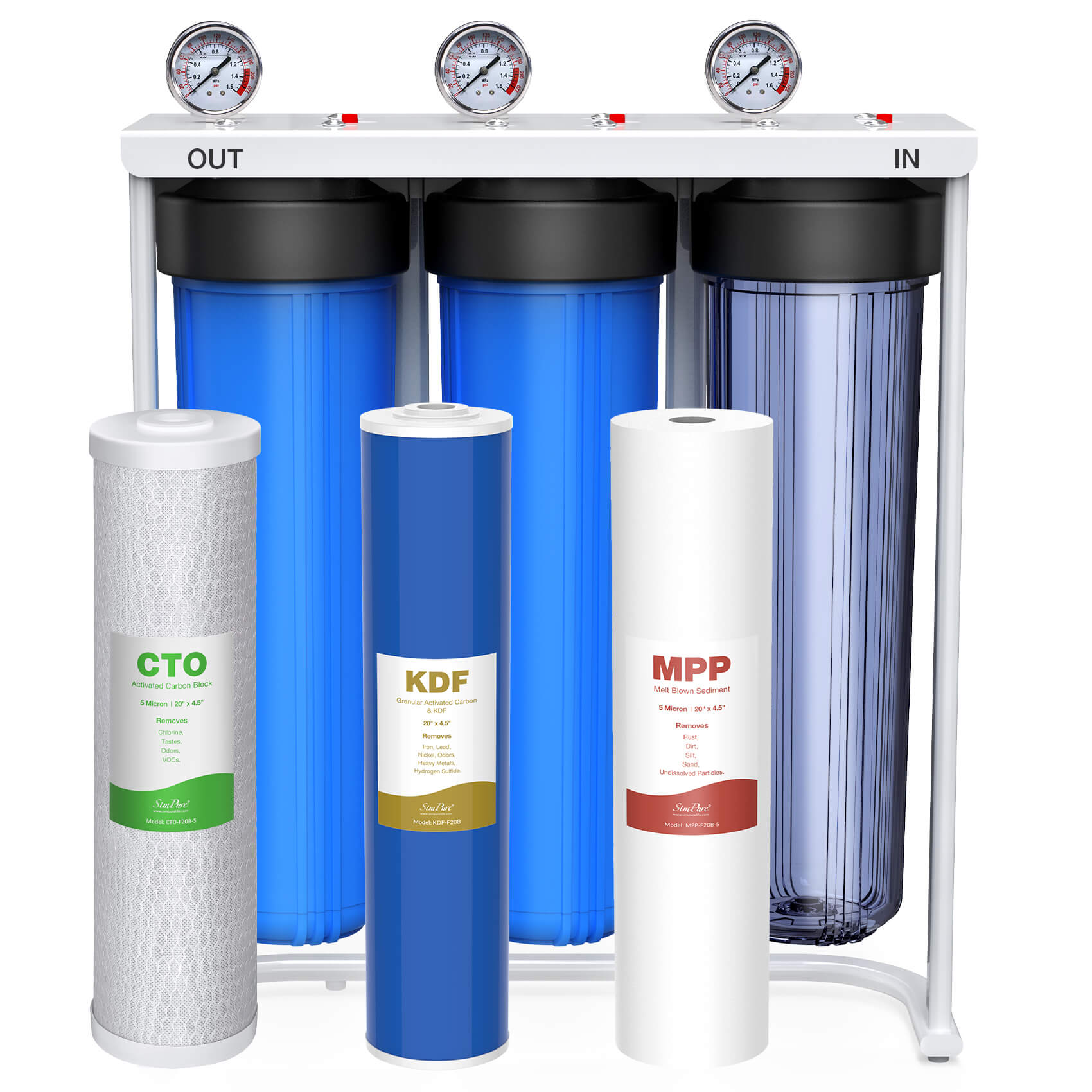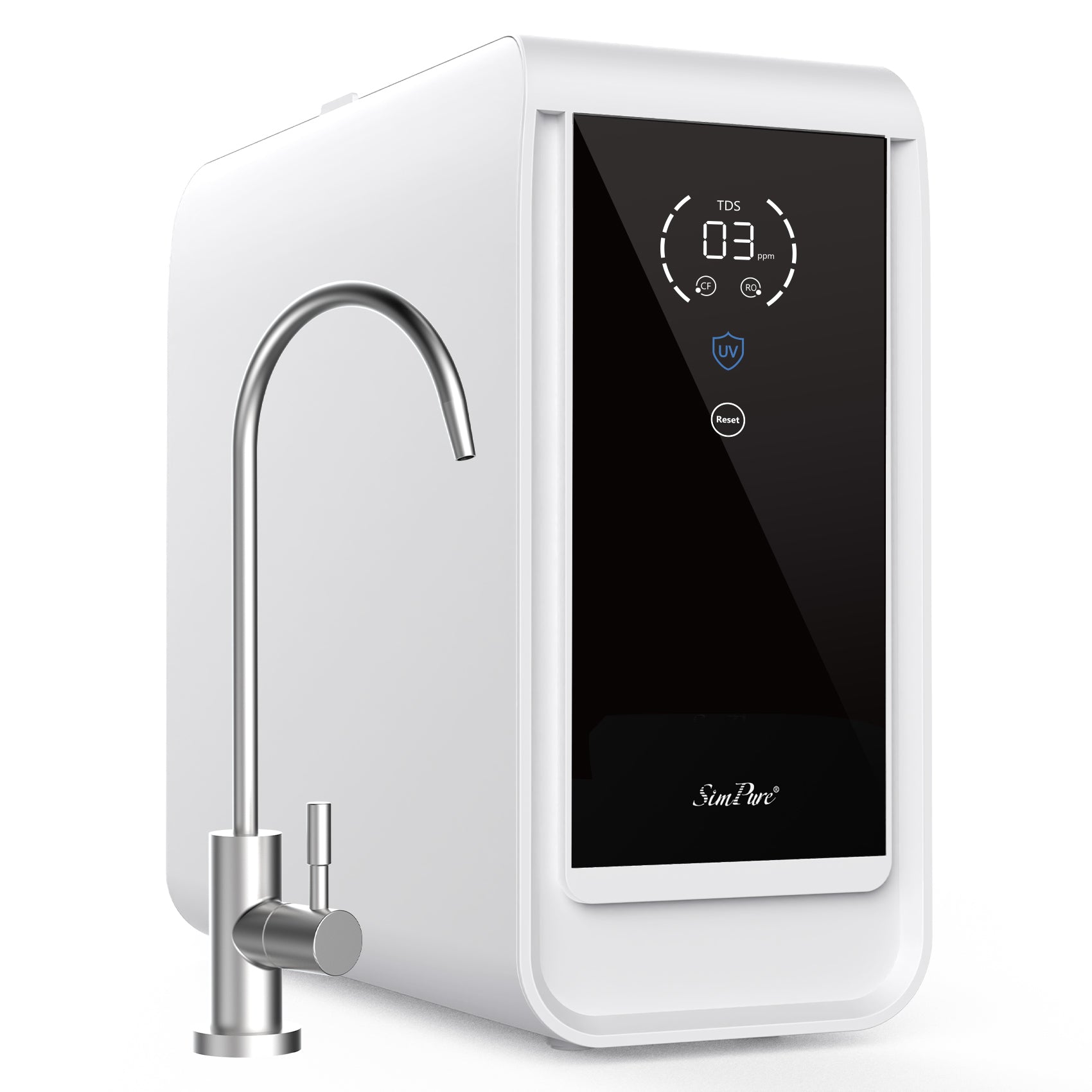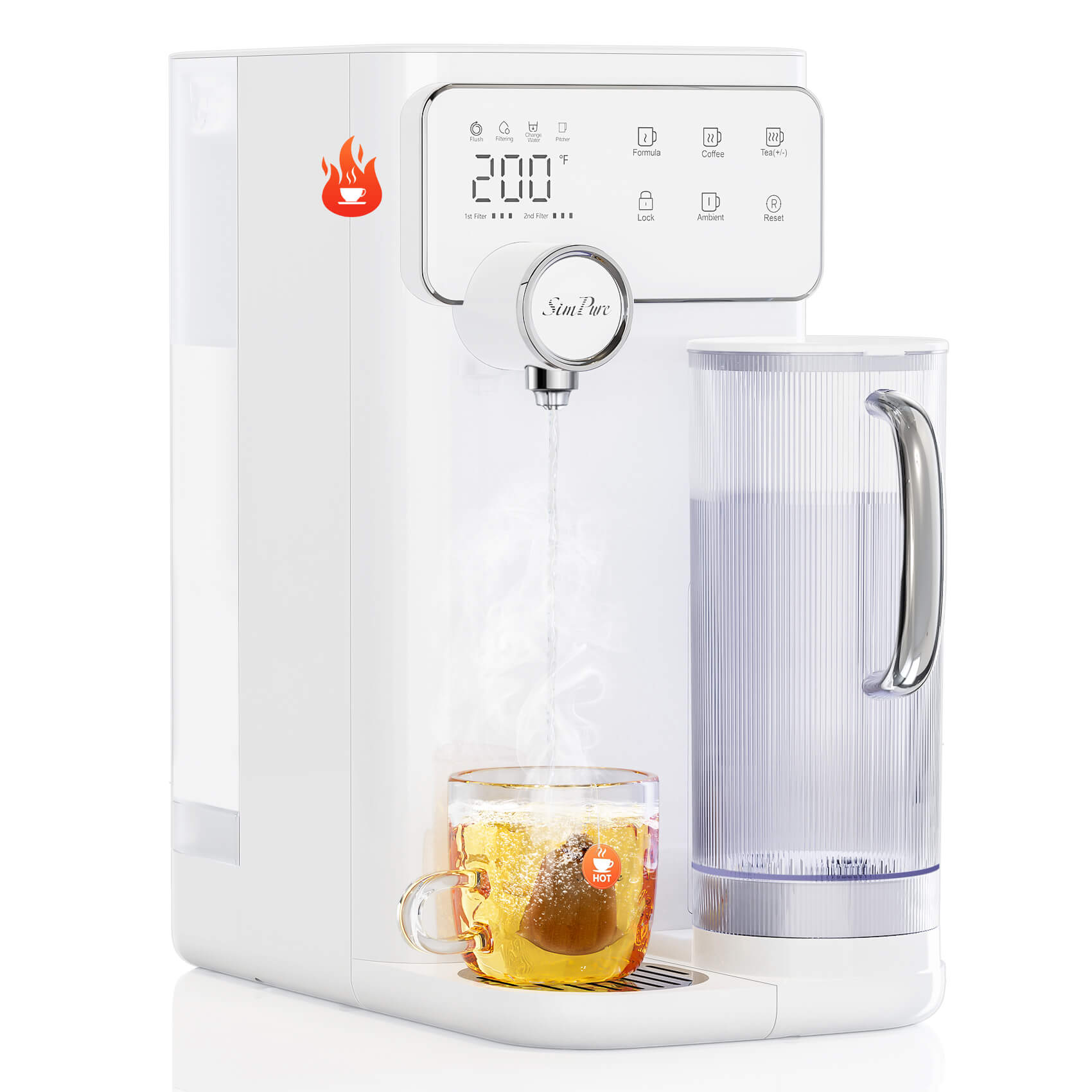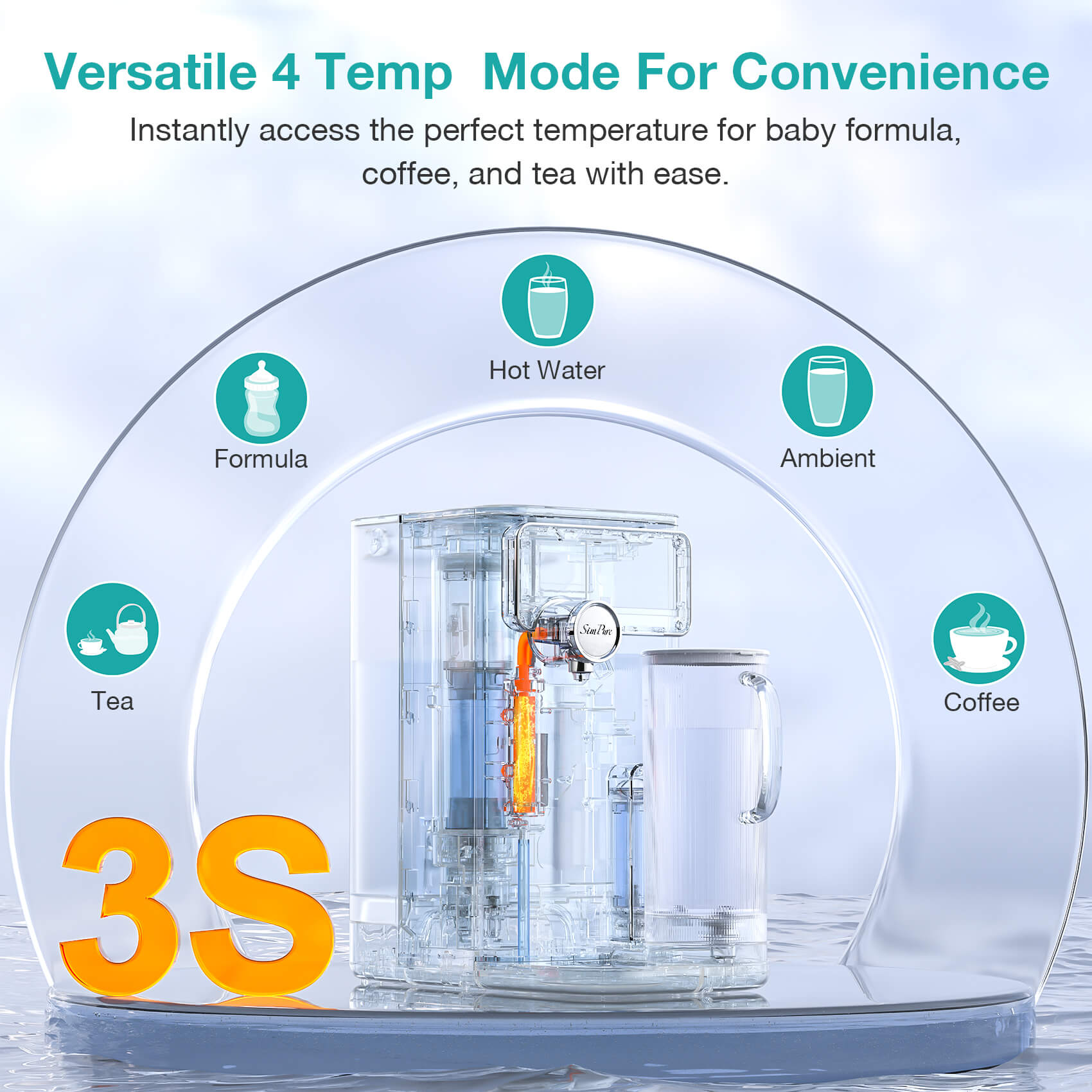“Isn't it all water? With so many fancy names, are you deliberately making things difficult for me? "This may be the voice of many people when they see these three kinds of water. In fact, we have heard of these concepts, but we may not know the details. But since someone has asked sincerely, we will take this opportunity. Break it down and make it clear.

The first step is to briefly understand the star members of the water quality family.
- Direct drinking water: As the name implies, it refers to water that can be directly drunk.
At present, nano-filtered water, ultra-filtered water, and pure water all belong to the category of direct drinking water.
- Purified water: All purified water can be called purified water like water purified by home reverse osmosis system.
This range can be large. According to the current purification process, coarse-filtered water, ultra-filtered water, nano-filtered water, purified water, etc. belong to this category.
However, many people mistakenly think that clean water is water that can be drunk directly. In fact, they confuse the concept of clean water and direct drinking water. Most of the clean water can only be used for daily cleaning, washing a bowl, taking a bath, etc., Of course, if you mean after boiling, then just drink it.
- Soft water: refers to water that does not contain or contains less soluble calcium and magnesium compounds. Many people may experience a range of frustrating problems caused by hard water and want to use best water filter for hard water to get soften water.
Natural soft water generally refers to river water, river water, and lake water. If you want to get soft water daily, you can boil it or use a water softener. After reading this part, do you have a preliminary impression of various types of water quality? With this initial impression, you can quickly tell which filter water is drunk directly, and which needs to be boiled. The average water purifier business can no longer fool you!

In the second step, let's take a closer look at the characteristics and functions of various types of water quality. Since there are too many types of purified water and the effect is not outstanding, we will not expand it in detail here. We will focus on distinguishing between the more common ultra-filtered water and pure water in direct drinking water, as well as the more distinctive soft water, which is also great The three types of water that most people care about most.
Before the specific introduction, let's rank them according to the water quality:
Pure water> Ultra-filtered water> Soft water.
Pure water is the best, ultra-filtered water is the second, and soft water is the worst. But this is not to say that soft water is not good. After all, the usefulness is different. What is the specific difference? Let's look down.
Let's start with soft water
What is soft water?
The concept of soft water is relative to hard water. Ordinary household tap water is alkaline and harder. By reducing or removing calcium and magnesium ions, the water quality can be changed from hard to soft, that is, soft water.
How to get soft water?
Usually, ion resin exchange technology is used to remove calcium and magnesium ions in the water, while retaining the original minerals in the water, which can be achieved by using a water softener.
What is the use of soft water?
Because there are no sodium and magnesium ions in soft water, no scale will be formed, which can completely solve the problem of equipment blockage caused by scale and play a role in protecting water pipes and water equipment. However, it cannot remove harmful substances such as bacteria and residual chlorine in the water, and it cannot be directly consumed. It can be used for bathing, washing clothes, washing dishes, washing vegetables, etc. Tableware and clothes washed with soft water are cleaner and have less detergent residue; used to cook rice, taste better; used to wash the face, can make the skin more delicate; used to wash the hair, can make the hair softer and easier to comb.
Then there is ultra-filtered water
- What is ultra-filtered water?
Compared with raw water (usually tap water), it removes rust, silt, suspended solids, bacteria, algae and other harmful substances in it, and retains minerals and trace elements that are beneficial to the human body.
But it cannot remove all metal ions, nor can it filter out calcium and magnesium ions.
- How to get ultra-filtered water?
Through the high-precision purification process of ultrafiltration membranes, the water quality is effectively filtered, which can be achieved by using ultrafiltration water filters.
- What is the function of ultra-filtered water?
In areas with better water sources, it can be drunk directly after filtration, and the water quality and taste are equivalent to bottled mineral water or mineral water. However, in areas with a lot of metal ions, it is recommended not to drink directly, or to use it for daily cleaning like other purified water. Because the calcium and magnesium ions cannot be removed and the hardness of the water cannot be reduced, there is still scale in the boiling water, which is not as effective as soft water.
The last is pure water
- What is pure water?
Pure water refers to H2O without impurities. From an academic point of view, pure water, also known as high purity water, refers to water with extremely high chemical purity. Because it does not contain substances other than H2O, it is also the safest water. (It is pure, clean water that does not contain impurities or bacteria, such as organic pollutants, inorganic salts, any additives and various impurities.)
- How to get pure water?
Generally, RO reverse osmosis technology is used for the production of purified drinking water. The filtration accuracy of RO membrane is only 0.0001 micron, so (effectively intercepting) all kinds of viruses, bacteria, heavy metals, solid soluble matter, polluting organic matter, calcium and magnesium Ions can't pass through, and it can be obtained by using RO reverse osmosis water purifier like water filter dispenser.
- What is the use of pure water?
Because the implementation of reverse osmosis technology was very expensive in the past, the application was basically used in aerospace and military industry. With the development of society and technological innovation, reverse osmosis technology has been popularized. It has developed rapidly in civilian use, and its cost has also been extremely high. Large reduction. Due to the extremely high removal characteristics and stable structure of reverse osmosis, it is recognized as the safest drinking water production process in the world.
Pure water is safer and purer than purified water and can be drunk directly. The water quality and taste are equivalent to normal drinking. The bottled purified water is suitable for pregnant women, infants, and the elderly who need nursing care.



